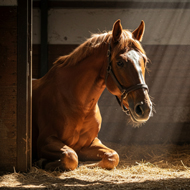Cat microchipping becomes compulsory in England
Last year 115,000 pet cats in England went missing, and were not returned home.
A new law has come into effect in England, which makes it compulsory for all pet cats over the age of 20 weeks to be microchipped.
However, despite owners facing a fine of £500, Cats Protection estimates that up to 2.2 million cats are yet to meet the new requirements.
Cats Protection has stressed the importance of microchipping all pet cats. It says that an up-to-date microchip can make it easier for feline charities, veterinary practices and local councils to reunite lost cats with owners.
Last year 115,000 pet cats in England went missing, and did not get returned home.
The animal welfare charity’s Cats And Their Stats report for 2024 revealed that there were 1.9 million cats in England which were not microchipped. There were also approximately 300,000 cats where owners were unsure if they were microchipped.
One in four of the pet owners who had not had their cat microchipped felt they did not need to as their cat did not go outdoors, whereas one in five said their cat did not travel far when they left the house.
Around one in seven cat owners believed that their cat would be identifiable from its collar. Another one in seven said they had never thought to microchip their cat.
Cats Protection has responded to these misconceptions, stating that a microchip is the safest way to secure a cat is returned home if it becomes lost.
The welfare charity says that indoor cats are also at risk of getting lost, due to their agile nature. If a window or door is left open, they can easily escape onto the streets.
A cat collar is also not considered an efficient way to keep cats safe, due to the risk of the collar falling off or becoming damaged. Furthermore, if it is not quick release, it can become caught on obstacles such as tree branches and injure the cat.
Madison Rogers, head of advocacy, campaigns and government relations for Cats Protection, said: “In contrast, a microchip is safe, stays with your cat for its lifetime and is linked to contact details that are stored safely in a database.
“Provided that owners keep the contact details up to date, then a microchip provides the very best chance of being reunited with a lost pet.”
Image © Cats Protection



 Zoetis UK has called on horse owners to complete a short online survey about their horse's behaviours.
Zoetis UK has called on horse owners to complete a short online survey about their horse's behaviours.